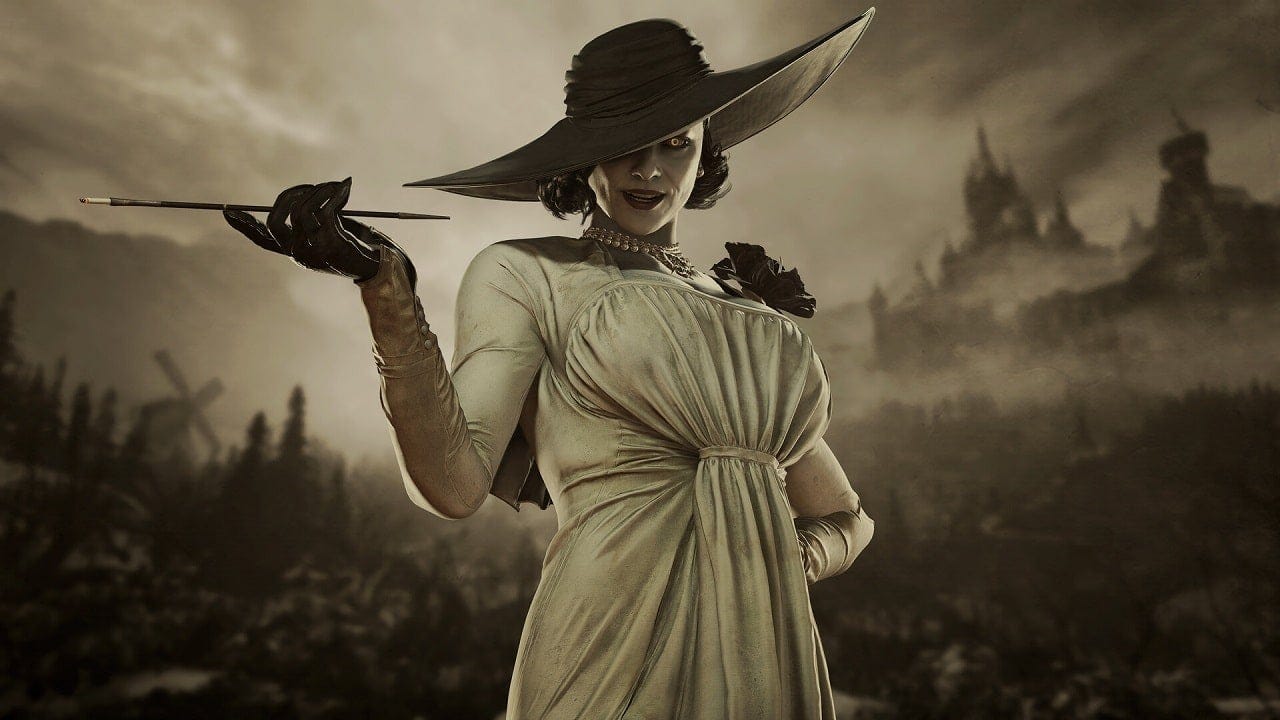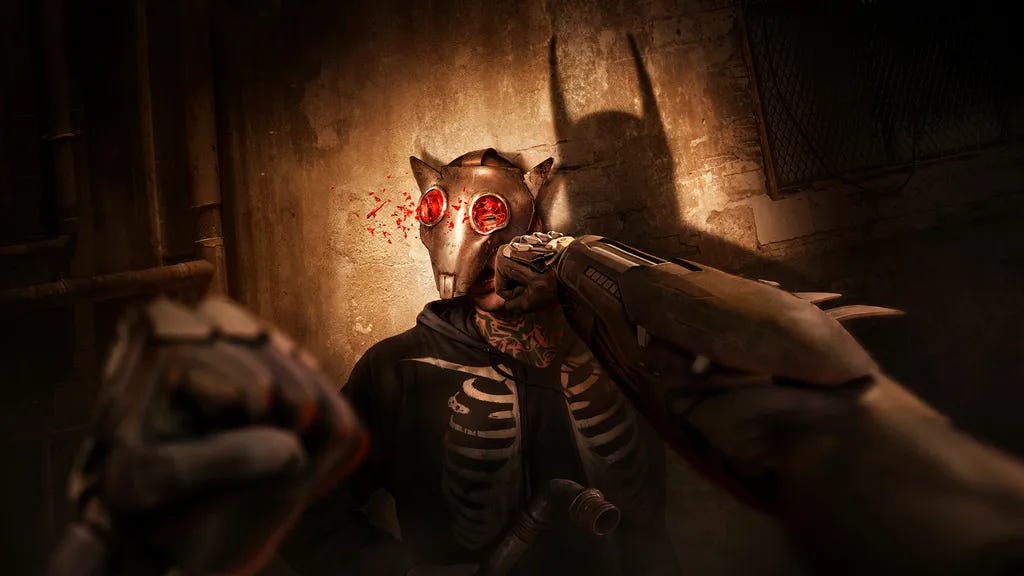It’s that time of year again, kiddies. There’s a turkey in the oven, the stockings are hung by the chimney with care, and Geoff Keighley is going to tell us where to send the bulk of our paychecks for the next 18 months — including great titles we may have missed.
That’s right: It’s time for The Game Awards once again.
Nominations came out this week, and whether you love or hate the overall show, there’s no doubting its reach and impact. Last year saw 118 million people watching live. By contrast, the 2023 Superbowl had 115 million viewers. It’s live viewership is more than double that of the Oscars, the Grammys, and the State of the Union combined. I can’t think of a better stage to show virtual reality off to the world, which is why the way its handled is a truly heartbreaking shame.
We’ll get into the problem momentarily, but before we do, it’s important to understand how games get nominated for The Game Awards.
More akin to something like the Oscars than, say, a Fast Company award, there’s no central body that publishers can reach out to for having their games considered. Instead the decision falls to a collection of games industry experts — in this case, journalists — to nominate in a truly unbiased way. While the nominations generally tend to collate around the most popular titles of the year and leave everyone debating about the snubs and oversights, well — that’s kind of like the Oscars too. And that’s good! It stirs conversation in all the right ways.
The problem comes when you add a category like VR, which most mainstream sites refuse to cover and most mainstream journalists don’t have experience with. These same journalists are responsible for the VR nominations just like they are any other category, and it has resulted in year after year of nominations that don’t make a ton of sense to those of us in the industry. Games with recognizable IP to non-VR gamers, or first-party games that have the full-throated support and massive media and marketing efforts of platform holders.
And here we sit, slack jawed, always hoping the next year will be different.
That isn’t to say that the games nominated aren’t deserving — in fact, this year’s selection is almost five for five on what I expected to see. Though whether that’s a testament to fairness or just my expectations of The Game Awards by this point is anybody’s guess.
Regardless of their high quality, this year’s nominees still largely fit the mold:
Arizona Sunshine Remake — a VR IP that mainstream outlets loved in its initial release back in 2016, when they were still experimenting with VR coverage
Asgard’s Wrath 2 — HUGE first-party title with Meta’s full marketing and media relations support, reaching as mainstream as NPR in coverage
Batman: Arkham Shadow — Same as above, but it’s BATMAN — and not just Batman, but an entry in a beloved non-VR Batman games series
Metal: Hellsinger VR — 2022 non-VR indie darling in VR
Metro Awakening — Massively popular non-VR FPS series
It’s not that I’m mad that so much of the content VR gamers loved this year didn’t make the cut (Maestro, Blade & Sorcery Nomad, I am Cat, etc..) — I’m just disappointed that it feels like they weren’t even part of the conversation given the tropes that The Game Awards seem to keep falling into.
But maybe there’s a way to fix this.
I don’t love saying this out loud, but let’s be frank: we can’t get mainstream gaming media to suddenly fall in love with VR overnight (though man, I keep trying). Until that changes, it would behoove us all for Geoff to treat VR like the specialized category that it is. That means having a dedicated, hand-selected subset of judges who know this industry and trust them with nominations going forward. It’s not only a solution, but it’s a proven one: The Game Awards already does this for Innovation in Accessibility, turning to trusted voices in that community (like Steve Saylor) to help make the selections.
What do you say, Geoff? Can leading VR voices help you out in 2025? (And can I get you in a headset to chat about this over a round of Walkabout MiniGolf?)
I Miss SuperHyperCube, You Guys
If you didn’t read last week’s newsletter, I’m going to quickly catch you up on two things that are relevant to the words you’re reading now:
Sony is discontinuing the PSVR adapter for the PS5
I’m going to fiddle with the “games to play” section I always close with
As is often the case in my life, I’d been meaning to order the PSVR adapter since day one of the PS5’s launch — but only got around to it once I was told they were taking it away. I’m still waiting on the delivery, and while there’s a crazy amount of great content in that catalog, the thing I’m most looking forward to is diving back into SuperHyperCube. It’s maybe my favorite VR game that it seems like nobody has ever played.
Published by Polytron of FEZ fame (and yep, with contributions by by no less a genius than FEZ’s Phil Fish), SuperHyperCube is a hypnotic, rhythmic puzzle game that challenges players to rotate a series of cubic objects so that they can pass through holes that are careening towards you. It’s a simple premise that’s an absolute high score chasing joy, and eight years after its release I still refuse to believe this was secretly a Tetsuya Mizuguchi project.
While the game is on Steam, I’ve found that it’s not really optimized for play with Quest controllers, so I can’t totally recommend it unless you’re running a PC VR gaming rig (and if you are, who ARE you in 2024??). But if you can somehow get a PSVR version up and running? Do yourself a favor and get on it.
And since I’m putting out random calls to industry giants in today’s newsletter, let’s try for a twofer: Phil. Mr. Fish. The Fish-er-man. Gimme a call. Let me help you find a publisher to bring SuperHyperCube to Quest. It would make me a SuperHappyJim to do so.
##
Still reading? Bless you. 🙏
If you have any predictions for XR gaming in 2025, let me know! Feel free to drop me a DM on LinkedIn or shoot me an email here. I might just include them in an upcoming newsletter as we head into the new year.
Don’t forget to check your mirror for “mask face”,
- Jim








